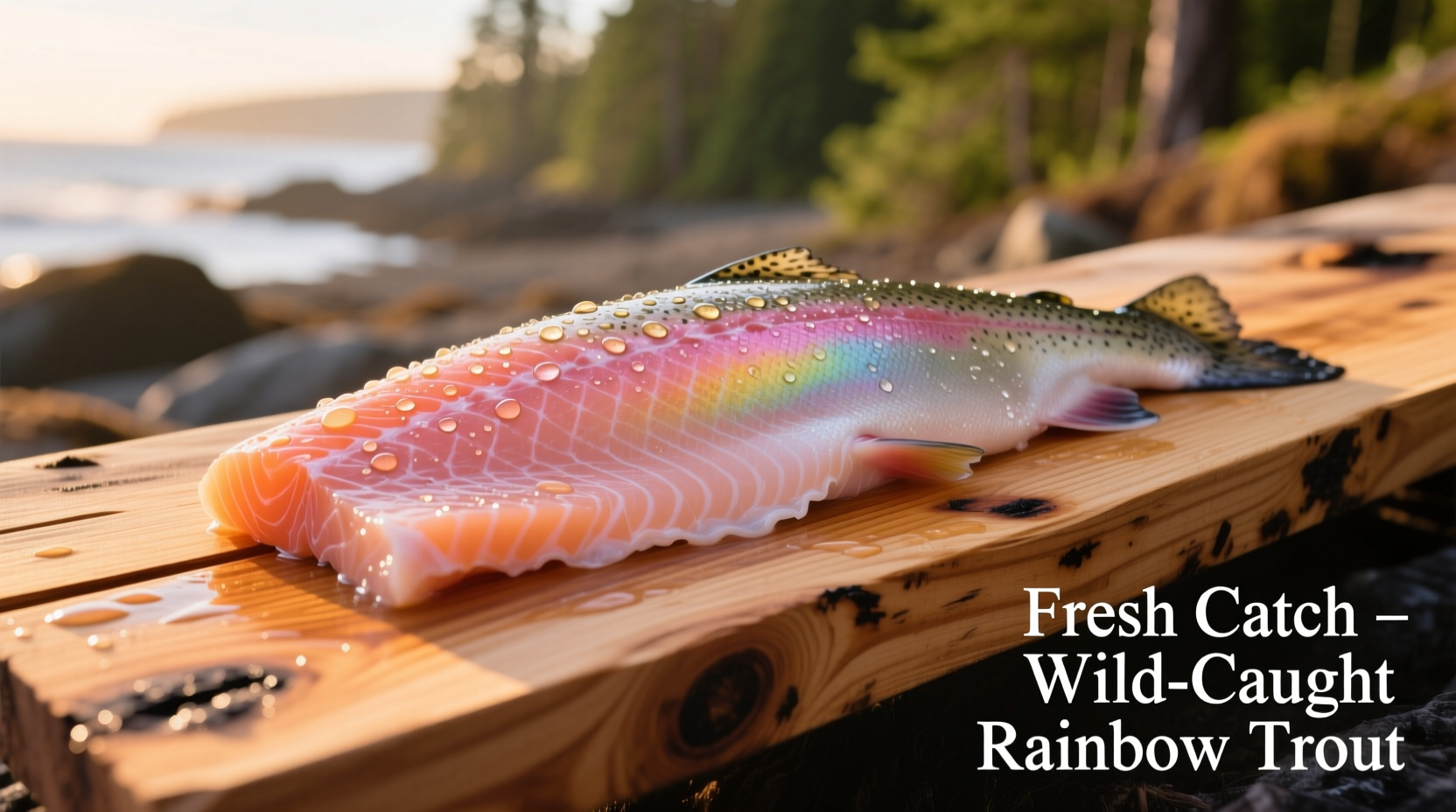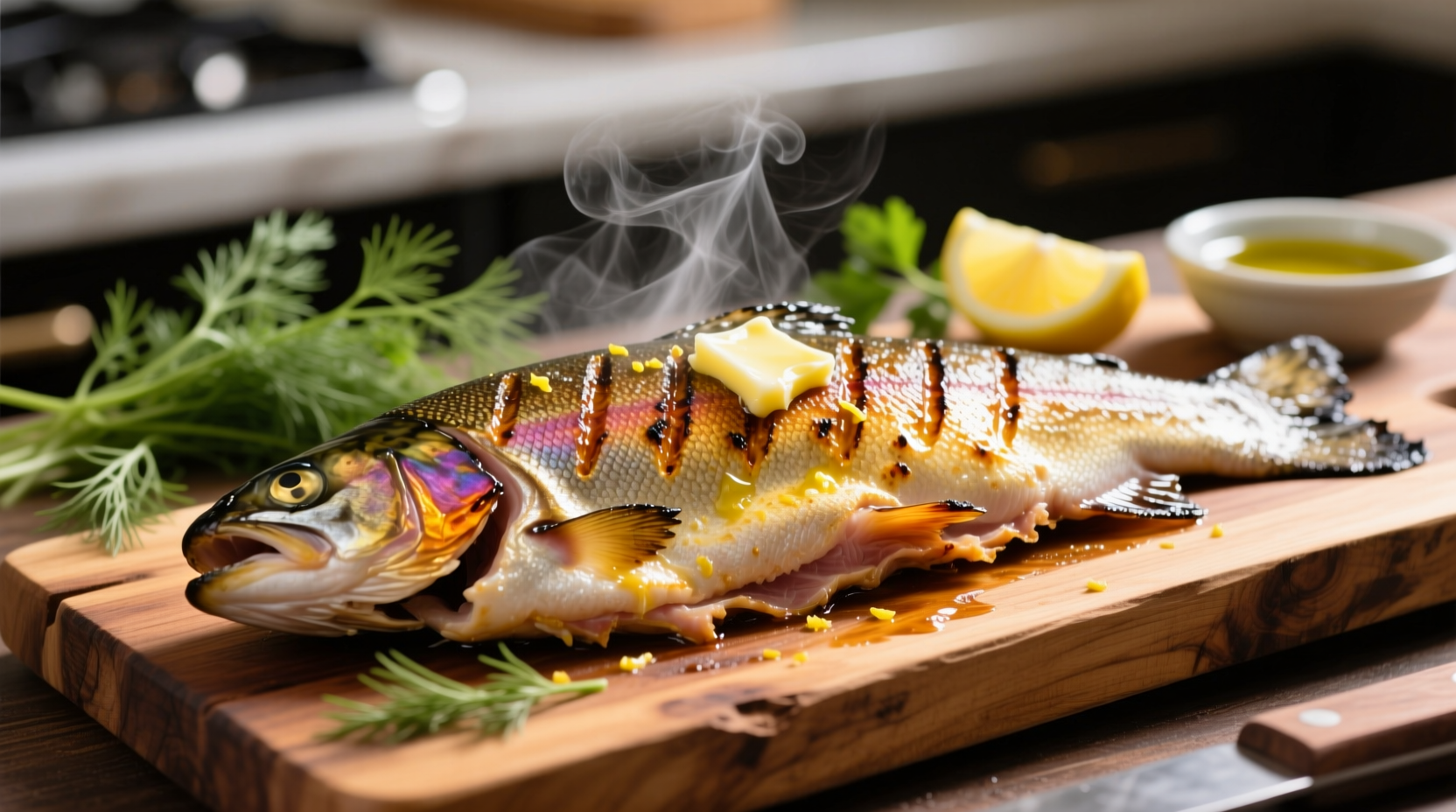Understanding Trout's Flavor Profile
When you ask what does trout taste like, the answer depends on species, habitat, and preparation. Most trout varieties share a clean, freshwater taste with moderate fat content that delivers a buttery mouthfeel without overwhelming fishiness. Unlike oily fish like mackerel, trout strikes a balance between richness and delicacy that appeals to both seafood enthusiasts and beginners.
The American Fisheries Society confirms that trout's flavor complexity comes from its diet and environment. Wild trout feeding on insects and small fish develop more pronounced earthy notes, while farm-raised trout fed controlled diets produce consistently mild flesh ideal for those sensitive to strong seafood flavors.
Trout vs. Other Popular Fish: Flavor Comparison
| Fish Type | Flavor Intensity | Texture | Best Cooking Methods |
|---|---|---|---|
| Rainbow Trout (farmed) | Mild | Flaky, tender | Pan-searing, baking |
| Wild Brook Trout | Moderate | Firmer, meatier | Grilling, smoking |
| Salmon | Strong | Rich, oily | Grilling, poaching |
| Tilapia | Very mild | Delicate | Frying, steaming |
4 Key Factors That Change Trout's Taste
Understanding what trout tastes like requires examining these critical variables:
1. Wild vs. Farmed Origin
According to USDA FoodData Central, wild trout contains 20% less fat than farm-raised varieties. This translates to leaner flesh with more concentrated, complex flavors in wild-caught fish. Farmed rainbow trout's consistent diet produces predictable mildness that works well in family recipes. The National Oceanic and Atmospheric Administration (NOAA) notes that responsible aquaculture practices have significantly improved farmed trout quality in recent years.
2. Water Source Matters
Trout raised in cold, fast-moving streams develop cleaner flavors than those from warmer, slower waters. Brook trout from Appalachian mountain streams taste distinctly sweeter than lake-dwelling varieties. This geographical variation explains why what does rainbow trout taste like differs across regions – a crucial consideration for chefs sourcing local ingredients.
3. Cooking Technique Impact
Trout's delicate flesh requires careful preparation. Overcooking creates dry, fishy results, while proper technique preserves its natural sweetness. Professional chefs recommend:
- Cooking skin-on to lock in moisture
- Using moderate heat (350-375°F)
- Finishing with lemon or herb butter
- Avoiding strong spices that overwhelm its subtle flavor
4. Freshness Indicators
Fresh trout should smell like clean water, not fishiness. The FDA recommends checking for:
- Bright, clear eyes
- Firm, springy flesh
- Shiny, tightly adhered scales
- No ammonia odor

Common Misconceptions About Trout Flavor
Many wonder is trout fishy tasting – but properly handled trout shouldn't have strong fishiness. The misconception comes from:
- Older fish not stored at proper temperatures
- Misidentification with stronger-flavored fish
- Overcooking that releases stronger flavors
Unlike bottom-feeding fish like catfish, trout's position in the food chain and freshwater habitat naturally produce cleaner flavors. The Culinary Institute of America confirms that when prepared correctly, trout ranks among the mildest-tasting freshwater fish available.
Maximizing Trout's Natural Flavor
To experience the best what does trout taste like answer, follow these chef-tested techniques:
Preparation Tips
- Rinse and pat dry thoroughly before cooking
- Remove any remaining bones with tweezers
- Season simply with salt, pepper, and lemon
- Try cedar plank cooking for subtle smoky notes
Ideal Pairings
Complement trout's delicate flavor with:
- Citrus-based sauces (lemon-dill, orange-ginger)
- Light white wines (Sauvignon Blanc, Pinot Grigio)
- Spring vegetables (asparagus, fennel, peas)
- Herb crusts (tarragon, chives, parsley)
Why Trout Deserves a Place on Your Menu
Understanding what trout tastes like reveals why this fish has sustained cultures worldwide for centuries. Its balanced flavor profile bridges the gap between mild white fish and rich salmon, offering versatility for countless recipes. Whether you're exploring does rainbow trout taste fishy concerns or seeking new weeknight dinner options, trout delivers nutritional benefits (rich in omega-3s) without overwhelming flavors that deter seafood newcomers.











 浙公网安备
33010002000092号
浙公网安备
33010002000092号 浙B2-20120091-4
浙B2-20120091-4